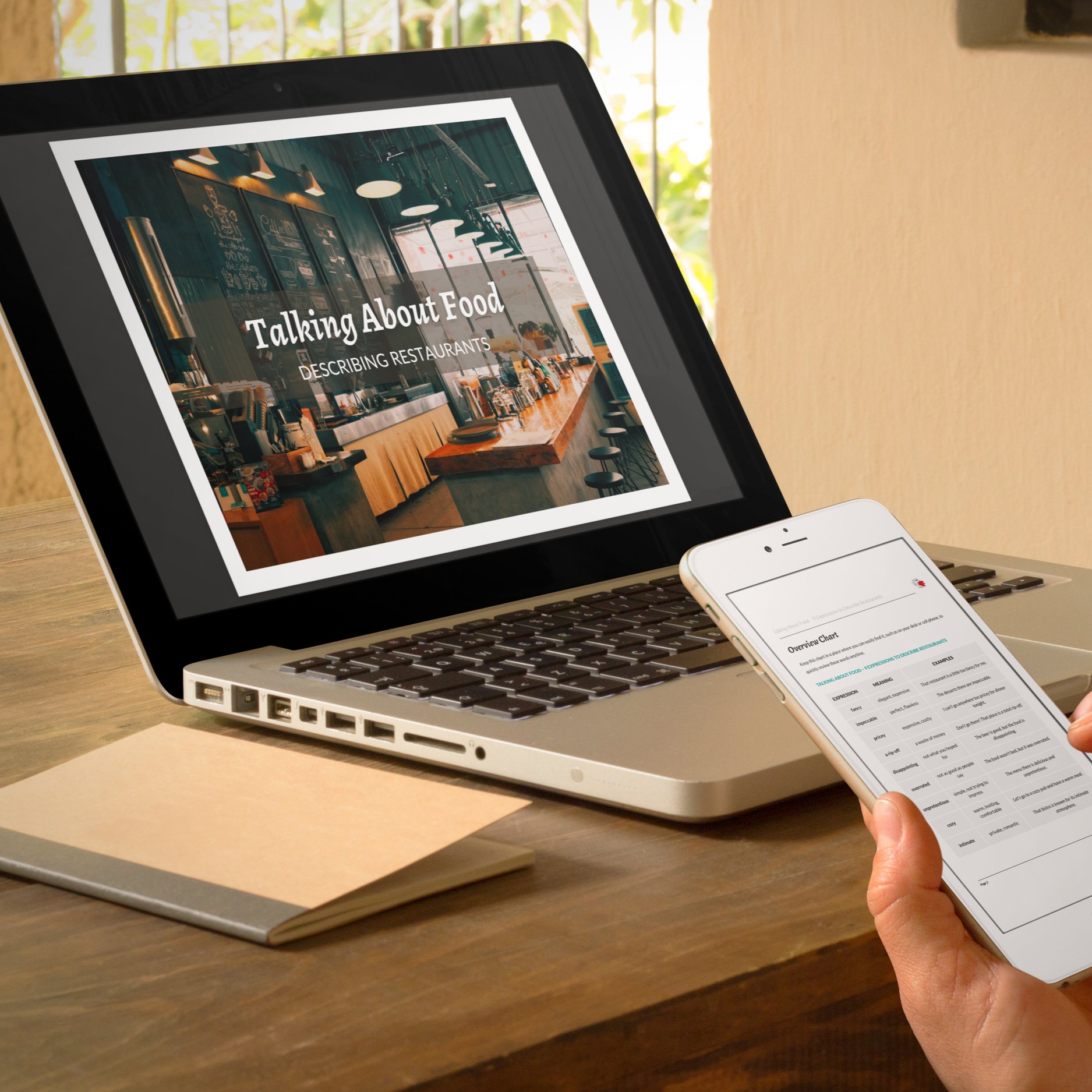8 Expressions That'll Make You Sound More Natural in American English
As an English coach, there is one complaint that pops up constantly from my readers and clients:
“I can’t understand native English speakers!”
They speak too fast. They eat half the words! So what can you do to fix this problem? The answer is simple: you need to spend more time listening to native English speakers. There is really no other way.
But if you don’t live in an English speaking country, finding native English speakers can be a challenge. And understanding the language used on TV shows or YouTube is not easy, because it’s spoken quickly and the expressions are confusing and difficult to understand.
The thing is, if you’ve never been exposed to the English we speak in real contexts, it will be hard for you to understand it at the beginning. Maybe you’ve only studied English in high school or in traditional language academies. And if that’s the case, then you’ve only been listening to simplified materials designed especially for English learners.
This is exactly why I created the series “What’s Another Way to Say..?”
When I used to teach at language institutes, I realized that most textbooks put so much emphasis on academic English, and little focus on spoken English.
So I decided to create something that will give you the chance to learn and practice the English expressions and vocabulary that we use in our daily lives and conversations.
In this article, I’m going to teach you these 8 common words and expressions:
Be about to
Hideous
Bent out of shape
On the money
What’s up with…
Go off
Get into
To die for
Let’s get started!
Teaching English Just Got Easier!
Save hours of time with an organized collection of high quality, easy-prep ESL lesson plans and worksheets right at your fingertips.
1. Be about to
If you’re about to do something, you’re going to do it very soon. So we can say,
“I’m about to leave.”
“The movie is about to start.”
“He looks like he’s about to cry.”
2. Hideous
When something is hideous, it’s very ugly. For example,
“The dress is hideous.”
“They built a hideous building in front of our house.”
We can also call an experience or an action hideous when it’s painful, unpleasant or evil. So we can say,
“The experience felt like a hideous nightmare.”
“The criminal was sentenced to life in prison for his hideous crimes.”
3. Bent out of shape
Literally, when an object is bent out of shape, it means that something distorted it or altered it, such as a hit or an accident. But this expression is rarely used literally. Most commonly, it’s American slang and it means angry, upset or annoyed. Let’s look at some common examples,
“They were bent out of shape because we were late.”
“She was bent out of shape because we didn’t invite her.”
“Don’t get all bent out of shape. I’m sure he didn’t mean to insult you.”
4. On the money
On the money is an informal American expression which means ‘exactly’ or ‘precisely’. Most commonly, we combine it with ‘right’ as in the following examples,
“I think what she said is right on the money.”
“She was right on the money when she told me that I should find a new job.”
5. What’s up with…
What’s up can be used sometimes as a kind of greeting. It’s another way to say, “What’s new?” and we usually respond with “Nothing much!”
But sometimes we use it when someone looks unhappy, worried or is just acting strange. For example, if your friend looks upset or is acting a little weird today, you can ask:
“What’s up with you today? ”
Keep in mind that we can only use this expression with friends or with people who are close to us. Let’s look a few other examples,
“What’s up with John lately?”
“Is something up with your sister? She looks really unhappy.”
We can also use it when a thing is not working properly. So we can say,
“What’s up with your car? It’s making weird sounds.”
6. Go off
When a phone or an alarm goes off, it starts ringing. For example,
“I didn’t hear the alarm go off this morning.”
“I can’t believe my phone went off during my job interview!”
7. Get into
When we get into something, we become interested in it. So we can say,
“How did you get into surfing?”
“I can’t get into this book because the first chapter is so boring.”
8. To die for
When something is so good that you want to have it, it’s to die for. It’s another way to say that something is delicious, irresistible or very attractive. For example,
“This cake is to die for!”
“Our hotel room had a view to die for!”
I hope you enjoyed this post! Make it a challenge to listen to something in English every day. Start with short YouTube videos, podcasts or even songs. If you do this for some time, you’ll experience dramatic results with just 5 minutes a day.
Let me know in the comments if you have any questions! And if you haven’t done so yet, make sure you join my community for more free tips and lessons. Thanks for reading!
















